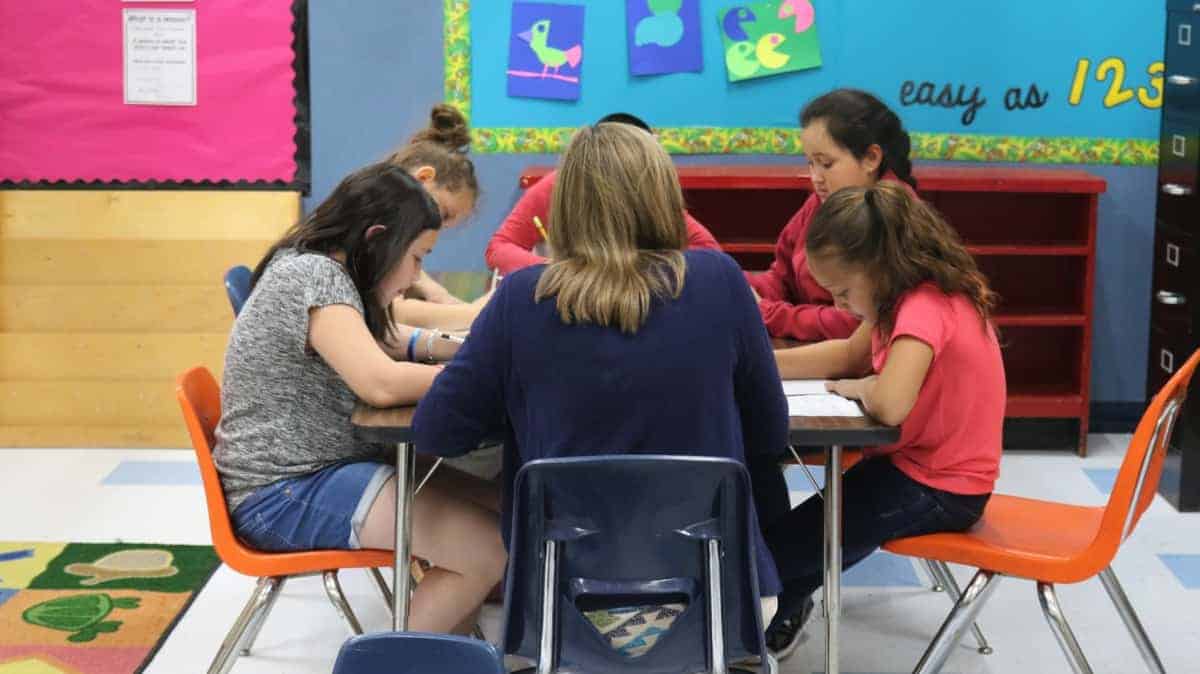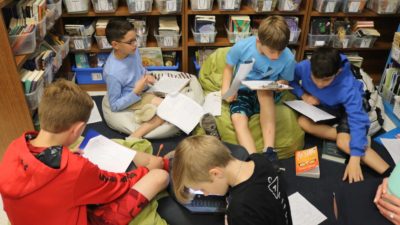This is the sixth piece in a series on competency-based education. Read the rest of the series here.
With the North Carolina Department of Public Instruction (NC DPI) curating a statewide vision for personalized learning, and REL Southeast staff offering professional development on competency-based education (CBE), teachers and school leaders are hungry to implement more personalized methods of education in their contexts. Knowing that schools across North Carolina are already engaged in this work is certainly an encouragement for many, but at REL Southeast, we also acknowledge that there are challenges to implementing more personalized approaches like CBE.
Challenges
Constructing common understanding. A key challenge to implementing CBE and other personalized learning methods is simply understanding what it is. Having a cohesive, thoughtful definition for personalized learning and communicating that definition to students, families, and community members allows for everyone to agree with the work the school or district is doing in relation to personalization. The Measuring Success Through Competency-Based Learning Research Alliance has developed a clear definition for CBE that others can use within their contexts, hoping to provide clarity and unity across schools and districts in North Carolina and beyond:
“As a personalized learning approach, CBE provides a flexible and engaging learning environment in which progression is based on mastery of explicit learning objectives, or competencies, as demonstrated through evidence of student learning, rather than the time spent in a course/topic.”
Adhering to strict policy guidelines. Traditional public schools face great constraints in the face of implementing CBE for every child. Master schedules, rigid testing windows, and having promotion and retention dependent on a student’s seat time in a course limit flexibility. Further, breaking down standards into competencies is a time-consuming, collaborative process to which many schools cannot dedicate time.
Building educator capacity. For educators, capacity building is massive challenge to implementing CBE and other personalized learning practices. Changing staff mindsets and on-boarding new teachers into a culture of personalization is no small feat. For many educators, shifting away from traditional, comfortable content development and grading systems — which may be all they know — to something new can instill fear, uncertainty, and disdain. With so many other initiatives going on within the school building, many educators feel exhausted at the idea of trying another initiative.
Experiencing the uncertain. These feelings of anxiety are not limited to educators — they extend to students and families. Most students have spent their entire lives in school receiving traditional grades on an A-F scale. We think we know what these letter grades mean — I have an A! I get it! — when in reality, that grade fails to tell the student, the teacher, and the family what specific items from a standard a student knows and can demonstrate. Along with grading scale changes, students face big leaps in their time management skills and overall autonomy in their learning. These growing pains can frustrate students and families, especially when they are unsure of the benefits of CBE and other personalized learning models.
Opportunities
Sharing philosophical beliefs. Despite the challenges, opportunities abound. James Aldridge, assistant principal of Carroll Middle School in Raleigh, said that there was little pushback ideologically from staff at Carroll when making the transition to competency-based practices — the biggest staff questions were around logistics. Engaging in an open dialogue with staff, as well as families and other community stakeholders, allows for real-time feedback on the process of implementing CBE to find ways to make things better.
Restructuring grading practices. Many elementary schools across the state already use some form of competency-focused grading, using scales like1-4 that denote levels of mastery from not meeting grade level standard to exceeding grade level standard. Schools like Carroll Middle and Innovation Academy in Johnston County both take a standards-based approach to their grading systems even though they are not elementary schools. In the statewide grade book tool, PowerSchool, there are standards-based grading options available that middle and high schools can consider.
Developing competencies by delving into standards. Like the work of Tri-County Early College in Cherokee County and Carroll Middle, schools are taking the initiative to develop their own competencies based on the North Carolina Standard Course of Study. Developing competencies means that the standard gets disaggregated into actionable items students can perform to demonstrate their understanding of a topic. Networking across districts and schools can alleviate pressure from a single school staff member to undertake the work of writing competencies for every standard.
Viewing assessment as part of the learning process. Despite mandatory federal assessments, North Carolina began employing NC Check-Ins in the 2015-2016 school year as a pilot testing program. NC Check-Ins are interim assessments aligned to grade-level content standards in English language arts (grades 4-8), math (grades 3-8 and math I), and science (grades 5 and 8). North Carolina is also working to create new, shorter assessments that can be given to students throughout the year through the innovative assessment pilot, with hopes that shorter, more frequent assessments in a formative style will be better for students and more informative for teachers.
Tasting autonomy and becoming a lifelong learner. The opportunity for students to experience agency in their own learning is a skill that will serve them well after their school days are over. Instead of just learning content, students also have the opportunity to learn pertinent life skills like time management, collaboration, and how to become a self-starter. They are able to engage their passions and experience a learning environment that is relevant to their lives. What greater benefit from personalization could there be for students?
Moving forward
There are distinct barriers that can keep schools and districts away from CBE and other forms of personalization, and these barriers cannot be dismantled overnight. Even with barriers in place, the benefits outweigh the costs — not only do students get to take ownership of their learning in a personalized learning environment, but educators have the chance to dive deeply into their content while considering every student to craft relevant, engaging lessons for their classes.
As North Carolina continues to move forward in its work around personalized learning, it is our hope that educators will continue to think creatively within their current contexts. Consider the small shifts that can be made, from rearranging school master schedules to rethinking the ways students demonstrate mastery of content.
REL Southeast staff and authors of articles in this series, Allison Redden (aredden@rti.org) and Laura Knapp (lgknapp@rti.org), are available to schools and districts across North Carolina as they decide to start their CBE journey.



